The achievement of happiness, according to Aristotle, is the end goal of every man.
His reasoning is thus: All human activities are done in order to attain something that is good. We don’t do something because we think it will be bad for us. In addition, most of these activities are not the main objective, but rather a means to a higher end. Consequently, the activity that is an end in itself, writes the prolific philosopher, is the highest good, and that good is happiness. We aim at happiness for its own sake, not because it will achieve something else. Happiness, therefore, is our greatest mission.
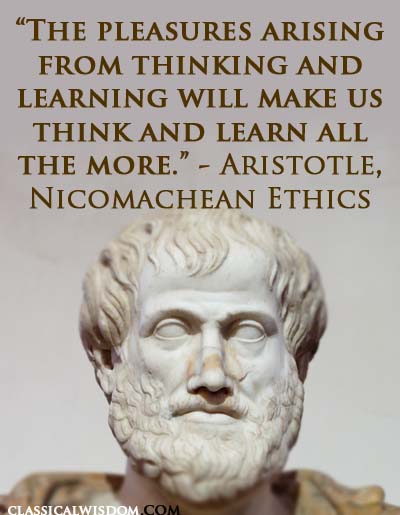
Supposing this to be our aim, Aristotle then proceeds in his Nicomachean Ethics to figure out how best to achieve this goal.
Aristotle starts with the claim that happiness is dependent on virtue. He describes virtue as a disposition, rather than an activity. The individual needs to be naturally a ‘virtuous’ person, rather than just acting accordingly. This exemplary man finds doing virtuous acts pleasurable, which is presumably why he does them.
But then, what is ‘virtuous’?
At this moment our scientific philosopher is uncharacteristically vague. Virtue exists somewhere in the mean, and therefore is subjective. The right path lies between excess and deficiency. The man should not be a coward nor rash. He shouldn’t be wasteful, nor stingy. He shouldn’t be described as boorish nor acting as a buffoon. The pattern is quick to reveal itself.
Plato’s student then clarifies that one’s actions can only be judged as praiseworthy or blameworthy if they are voluntary. Oedipus sleeping with his mother unknowingly, therefore, was not sinful. The decision to act must come from the rational and deliberating agent who executes the action, and not from some outside third party. This definition does get a little tricky, unfortunately, when considering actions committed under duress or severe threat.
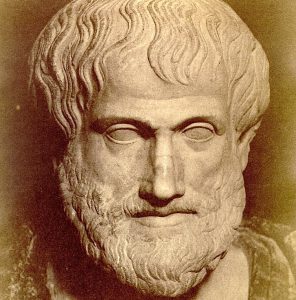 In true Aristotelian fashion, he then proceeds to outline and categorize all of the virtues and vices as he sees them. It’s good to be patient, for instance, when facing anger, but every now and then, it’s advisable to display a small amount of wrath yourself. It’s recommended to have the social virtues of wit, amiability and sincerity. Modesty is most appropriate among the young, and so on.
In true Aristotelian fashion, he then proceeds to outline and categorize all of the virtues and vices as he sees them. It’s good to be patient, for instance, when facing anger, but every now and then, it’s advisable to display a small amount of wrath yourself. It’s recommended to have the social virtues of wit, amiability and sincerity. Modesty is most appropriate among the young, and so on. We now come upon the issue of Justice, which Aristotle comments, encompasses all of the other virtues. This is because we need to exhibit the full range of proper behavior in order to be deemed ‘just’. This term is further examined and dissected into two primary forms of justice: distributive and rectificatory. The former, which at first appears socialist, addresses the need to distribute wealth and honors among the people… but only according to merit. The latter justice is concerned with the exchanges between two or more people. It aims at maintaining a sense of balance and equality among those involved.
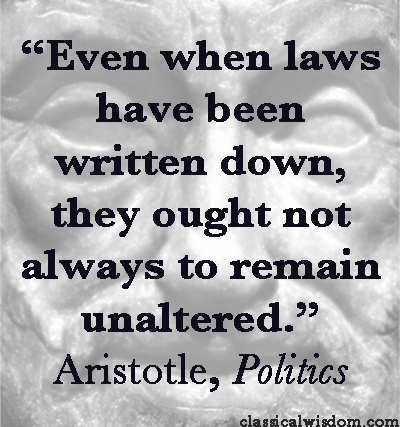
The philosopher then asserts that it is impossible to treat oneself unjustly or to suffer injustice willingly. Afterwards he concedes that while the law is a suitable guideline, it is by no means exhaustive. At times men must discuss the issue and come to an agreeance.
Moral virtues, unfortunately, aren’t quite enough. The ideal man also needs the intellectual virtues. These are described as calculative reasoning, such as art or technical skill and prudence. There is also contemplative reasoning, which is detached from from human affairs. This includes scientific knowledge, intuition, and wisdom. With these abilities we can rationally choose what is the most virtuous thing to do.
What about the people who know what is good, some might ask, but lack the self-will to do anything about it? Aristotle assigns them the special category of “incontinent”. Incontinence is not desirable, but it is also not quite as bad as actual vice. This is because it is deemed partially involuntary.
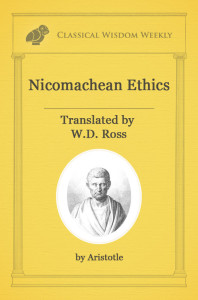 Aristotle’s investigation then takes a huge right turn into the arena of friendship. While it is realm of ethics not usually explored in modern times, our ancient greek philosopher took it very seriously. He began by separating out the different types of friendship: Those based on utility, on pleasure and on goodness of character. Not surprisingly, the latter is the most preferable. Friendship based on goodness will last because it is between two people who love each other for who they are, not for what they can gain from each other.
Aristotle’s investigation then takes a huge right turn into the arena of friendship. While it is realm of ethics not usually explored in modern times, our ancient greek philosopher took it very seriously. He began by separating out the different types of friendship: Those based on utility, on pleasure and on goodness of character. Not surprisingly, the latter is the most preferable. Friendship based on goodness will last because it is between two people who love each other for who they are, not for what they can gain from each other. Justice and friendship are closely connected, says Aristotle, because the state needs its citizens to be friendly with each other. He proceeds then to outline the three different types of political institutions based on friendship, nominating monarchy over aristocracy and timocracy as preferable.
Aristotle then employs what we now think of as the ‘oxygen mask first’ principle. When we are on a plane, we need to apply our own oxygen mask first, before assisting others. Likewise, we have to love ourselves before we can love another. Therefore self-love, argues Aristotle, is considered higher than friendship. While a fully self-sufficient person can technically be happy, he will have with a better, more contented life if he has true friendship.
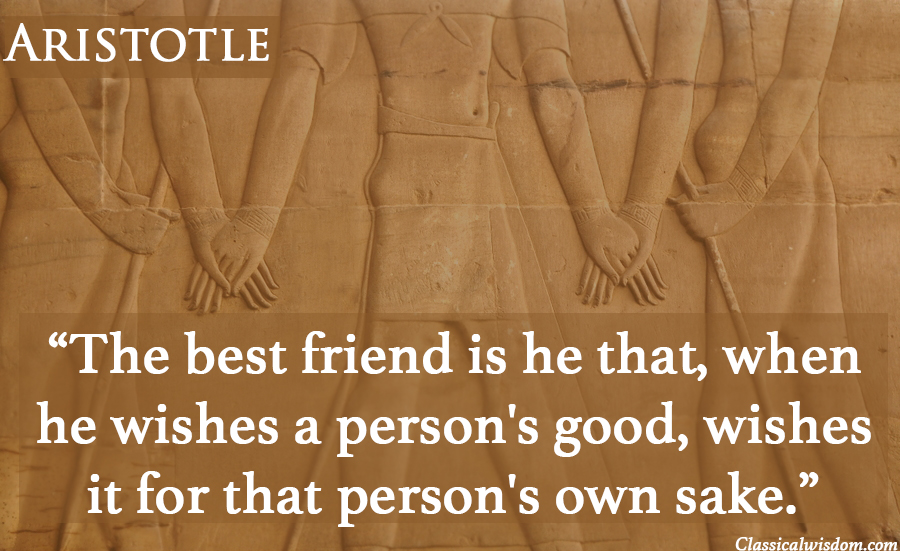
Finally Aristotle advocates a life with as much contemplation as possible. This is because doing good things will make good people happy and rational thought is the highest good. The practical sciences, therefore, should be pursued. They will enable us in finding the right path in life, as well as help with the practical issues that consume our time and attention. Essentially, go to a park… but remember to take a book.
It is here that Aristotle’s Nicomachean Ethics ends, and as many argue, his Politics begins.

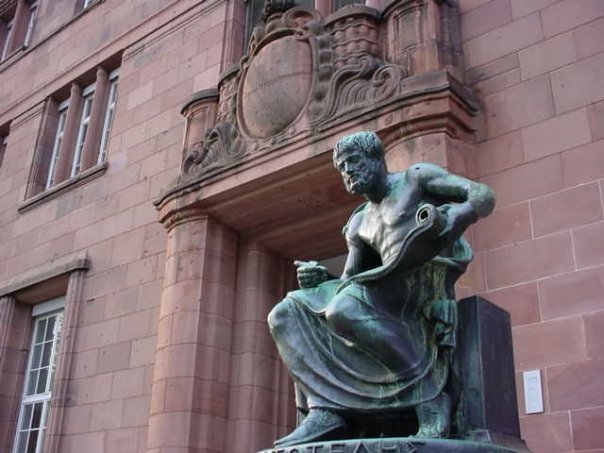








One comment
Very clear and helpful. thank you so much!
I read the passage first but I did not enjoy it. The original translation is a bit like Shakespeare. The language is hard to wade through and exhausting to read.
Our apologies, you must be logged in to post a comment.